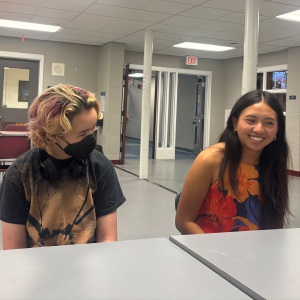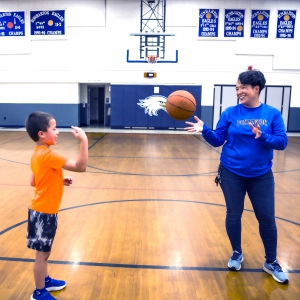3-Minute Civics: A bill of rights for teenagers
| Published: 09-22-2019 7:15 AM |
Whose rights are foremost in our Bill of Rights? Whose rights are largely ignored? Needless to say, teenagers – along with women, men who didn’t own property, Native Americans and enslaved African Americans – were left out of the framing of our Constitution and Bill of Rights. So, while many of its provisions now apply to all of these groups, there is little in these documents that focus on the rights of teenagers.
While I was teaching a course on Curriculum at Northeastern University, my students and I designed a middle school or high school unit for Civics or Social Studies that proposed this challenge: “If you had a chance to propose two additions to the Bill of Rights that are especially important to you as a teenager, what privileges or protections would they include?” The catch is that we added, “If in order to include your new ‘rights,’ you had to replace two of those already in the Bill of Rights, which ones would you do away with?”
This double challenge requires that students first get to know the Bill of Rights well, so they can make sure that their proposed additions are not included in the original list, nor were added by subsequent constitutional amendments (e.g. 14, 15, 19) that extended full citizenship and voting rights to women and people of color.
The next step would be the most fun: detailing two “rights” that teenagers feel would best protect and promote their lives as citizens. Anyone who’s ever asked kids what changes they would make in their schools knows that the first answers usually have to do with lunch (better food, more choices), recess (longer) and homework (abolished). It takes a while to get them thinking more seriously about factors that help them learn better and feel safe from bullying or other threats.
After a flurry of suggestions about skateboarding, freedom from adult domination and unlimited access to social media, teachers will try to guide the discussion to more serious ideas that have real impact on their lives, such as issues of gender equity and freedom from discrimination.
Students could, for example, come up with a list of five or six favorites, and then conduct a survey of their schoolmates to see which ones resonate (while preserving, as did our Founding Fathers, the right to make the final decision for their class). This process would itself be a lesson in civic engagement and would allow students to reflect on how seriously or frivolously their classmates take the issue of teenage rights.
Then the hard part: deciding which of the current amendments they would replace as unnecessary or just not as important as those they were proposing to replace them. It might be easy to say that the Third Amendment, relating to the billeting of soldiers in private homes, is no longer pertinent. But what would come next to get rid of? This might provoke a serious discussion of the relevance of the Second Amendment in an era of rampant gun violence. Or the Seventh Amendment, which, if you ignore the stipulation of $20 as the base amount for trial by jury, raises interesting questions.
In the end, the discussion of adding rights of special significance to teenagers will likely provoke a much fuller understanding of just how adequately the current Bill of Rights applies to them, and what would be lost in any substitution. The class will have to vote – perhaps by a two-thirds majority – on the final list.
Article continues after...
Yesterday's Most Read Articles
 Bill to allow ‘no fault’ evictions makes it to governor’s desk
Bill to allow ‘no fault’ evictions makes it to governor’s desk
 Around Concord: Living in an 1856 schoolhouse is (mostly) delightful
Around Concord: Living in an 1856 schoolhouse is (mostly) delightful
 ‘Over-regulation is going to create sneakier kids’: Concord High students react to impending bell-to-bell phone ban
‘Over-regulation is going to create sneakier kids’: Concord High students react to impending bell-to-bell phone ban
 ‘Deep flavor’ – New restaurant in downtown Concord offers creative spin on comfort food and cocktails
‘Deep flavor’ – New restaurant in downtown Concord offers creative spin on comfort food and cocktails
 Around Concord: The Balshaws bring a rustic revival to the Canterbury Country Store
Around Concord: The Balshaws bring a rustic revival to the Canterbury Country Store
 Dunbarton’s ‘Dynamo’: Kristine Flythe brings new life to town recreation activities
Dunbarton’s ‘Dynamo’: Kristine Flythe brings new life to town recreation activities
Finally, we suggest that a panel of local judges, constitutional lawyers and rights advocates be invited into the school to hear the arguments for whatever substitution of rights for rights the class had decided upon. The questions and comments from this panel would add another vital layer of civic education to what had already become an intense and memorable instructional process.
(Robert L. Fried, a retired professor of education at Northeastern University and former head of the Upper Valley Educators Institute in Lebanon, lives in Concord.)
]]>







 Opinion: What Coolidge’s century-old decision can teach us today
Opinion: What Coolidge’s century-old decision can teach us today Opinion: The art of diplomacy
Opinion: The art of diplomacy Opinion: After Roe: Three years of resistance, care and community
Opinion: After Roe: Three years of resistance, care and community Opinion: Iran and Gaza: A U.S. foreign policy of barbarism
Opinion: Iran and Gaza: A U.S. foreign policy of barbarism
